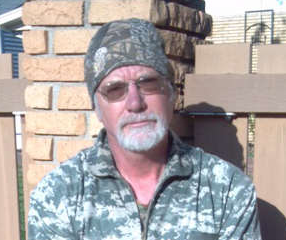
Unless you have spent all this summer under a rock somewhere, you are aware of how dry this part of the country has been. Ponds I have never seen dry look like parking lots, and some stream and river beds could easily double now as roads.
Drought affects all living creatures, animals included. I’m sure you’ve heard by now that fall turkey season has been suspended this year because of declining turkey populations over a large swath of the country, not just Kansas. “Declining production” is cited as the reason for that decision. Drought affects this too, as lack of green cover offers less concealment for young chicks and fewer insects for their sustenance.
Drought is just bad news all around, but dry years can help hunters, fishermen and trappers.
Drought will obviously affect waterfowl hunting. Most of the McPherson Valley Wetlands near McPherson are dry, and the wetlands just outside Inman have water in perhaps only one-half the pools. There are several ponds along the Kansas 61 four-lane highway that are completely dry, as are many other ponds in this part of the state.
Many of these ponds and water impoundments are favored by ducks and geese over the next couple months, so now all those birds will have to find other water in farm ponds, stock ponds and sand pits, for example. There is just as much feed around for them this year as any year, so that will probably mean just as many ducks and geese will stop here for a spell as on any year.
Putting two-and-two together means if you can get permission to hunt some of those otherwise overlooked and out-of-sight spots, the waterfowl hunting for you this year may be tremendous.
Whether big game, small game, winged or four-footed, furbearers or predators, all critters need water, and even though dry spells don’t affect critter movement patterns much, it’s a no-brainer that more wildlife will be watering at the ponds, creeks and rivers that still hold water.
Deer stands placed near water are good bets near dawn and dusk on any year, but this season hunting near a water source may be especially productive as more deer will be drinking from those spots.
If your hunting property doesn’t have water on it, try hanging a stand or putting up a blind as close as you can get to the nearest water. Stock tanks and windmill tanks will probably be more popular watering spots this season for wildlife too, so, if possible, find some cover within shooting range of them.
In short, this year water sources may be as big a draw as anything, so place you deer stands and blinds accordingly.
Although the properties I trap rarely have ponds on them, most predator trappers agree that pond dams are good spots to set traps for bobcats and coyotes, as they also need water and like to nose around on the dams. All pasture ponds will have cattle trails leading to and around them, and predators use those same trails too.
Following the same thinking, since some of those ponds are dry this year, the ones still holding water might be better trap sites this year than usual, as more predators and furbearers will be traveling there to drink. Deep holes in creeks and rivers that still have water will also see more wildlife traffic than normal.
I always wonder where all the beavers and muskrats go when ponds and drainage ditches go dry, and this year water sources still with water could see an influx of them, too.
Fishing is affected by extended dry spells also as water levels drop in ponds, lakes, rivers and streams and fish become more concentrated around cover in the available water. I questioned a friend about this who is a tremendous fisherman and he confirmed my assessment. He also added that ice fishing is often great on years when water levels are low, as fish are easier to locate beneath the ice.
Jacques Cousteau once said “We forget that the water cycle and the life cycle are one.” Leonardo da Vinci saw that “Water is the driving force of all Nature.”
Yes, it’s dry again and we need good soaking rains. It seems that all the native Kansans I know have long ago made peace with our state's propensity to stay dry, but as a Kansas transplant, I still struggle with that.
Nelson Mandela said “Let there be work, bread, water and salt for all.” I guess we can furnish the work, bread and salt, but only God can send the water.
Even though it’s dry, use some of the above tips to Explore Kansas Outdoors!
Steve Gilliland, Inman, can be contacted by email at stevenrgilliland@gmail.com.






